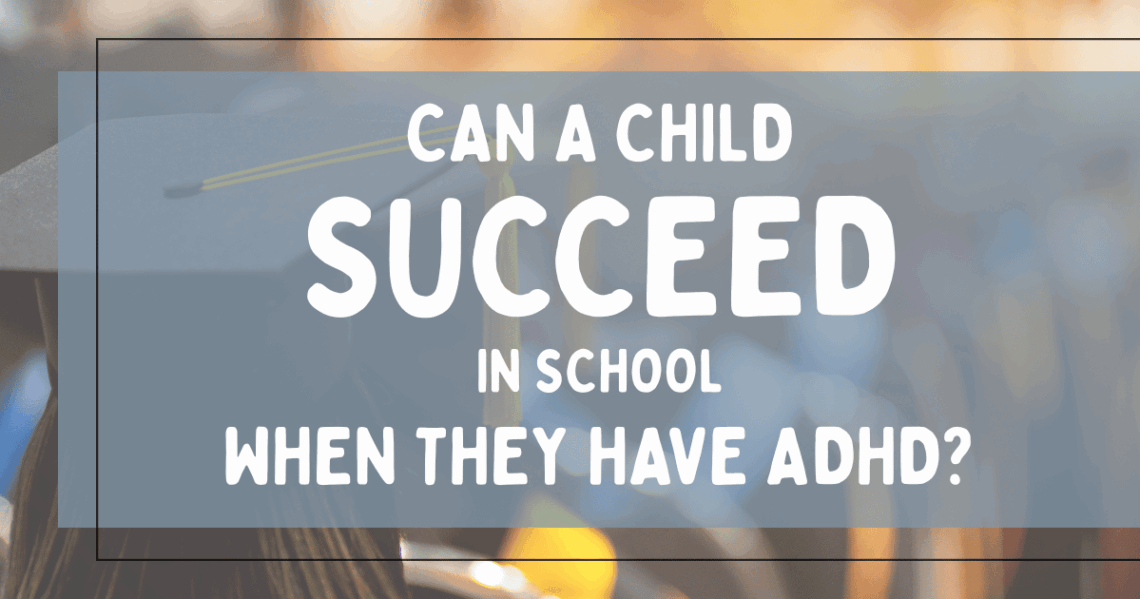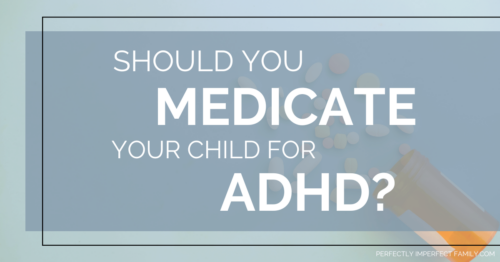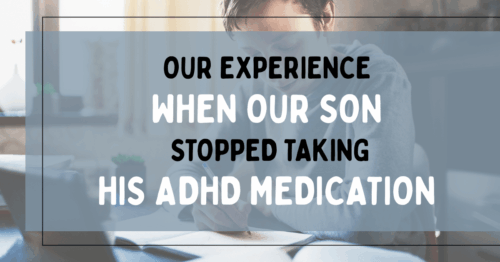
Can a Child Succeed in School When They Have ADHD?
If you’re a parent of a child with ADHD, you’ve probably asked yourself this question more than once: Can my child succeed in school? Not just get by, not just scrape through, but truly thrive, grow, and feel proud of what they accomplish?
It’s a fair question. ADHD, or Attention Deficit Hyperactivity Disorder, can bring real hurdles into the learning environment. From difficulty focusing and staying organized to problems with time management and following multi-step directions, children with ADHD often face unique struggles that traditional school systems aren’t always designed to accommodate.
And yet, despite those challenges, the answer to that question is a resounding yes. Children with ADHD can succeed in school, and not just in terms of grades or test scores. They can build confidence, discover their strengths, and learn how to advocate for themselves. It may not follow a typical path, and it might look different from what success means for their peers, but that doesn’t make it any less real.
Our Personal Experience
For me, this is not a theoretical discussion. My son has inattentive ADHD, and his journey through school has taught me more about resilience, creativity, and determination than any parenting book ever could. As a senior and about to graduate, we have navigated the ups and downs of every late assignment, every test, and everything in between. I know the struggles and how hard they can be, but they can be successful.
Unlike the more commonly recognized hyperactive-impulsive type, inattentive ADHD can often fly under the radar. These kids aren’t usually disruptive in class. They’re the daydreamers, the ones whose eyes drift out the window while the teacher is talking, the ones who lose assignments between the classroom and the backpack. In many ways, it’s a quieter struggle but no less real.
My son is intelligent, curious, and deeply thoughtful. But he has to work harder than many of his peers to stay on track. Instructions need to be repeated. Deadlines sometimes sneak up on him. And sometimes, the effort it takes to focus for extended periods is simply like running a mental marathon with no finish line in sight.
And yet, he’s learning. He’s growing. He’s finding his way.
Learning To Adapt Our Approach
Success in school for children with ADHD is often about adaptation. This doesn’t just come from the child. Teachers, parents, and school systems all play a role in helping these students succeed.
For our family, that’s meant a mix of strategies and support systems. Visual schedules, structured routines, and clear expectations have been game-changers. Maintain regular communication with teachers and identify allies within the school who understand how ADHD presents differently in each child.
Maintaining regular communication with teachers is crucial. My son would often forget what was said in school by the time he got home. There have been numerous emails exchanged with teachers to ensure we, as parents, had all the necessary information for him to complete an assignment. Additionally, attending the Parent-Teacher Conference was essential. Without going to these, we would never know how he was doing in class.
One of the most significant shifts came when we started focusing on his strengths instead of constantly battling his weaknesses. He’s incredibly creative and can come up with out-of-the-box solutions to problems that stump others. He’s empathetic and observant in ways many adults aren’t. When we started encouraging him to use those strengths, whether that meant letting him show what he’d learned through a drawing instead of a paragraph or allowing him to move while working, we saw his confidence blossom.
Redefining Success For An ADHD Student
We also had to redefine what “success” in school really meant. It’s tempting to chase straight A’s and academic perfection, but for many kids with ADHD, that’s not the most realistic or even the healthiest goal. For my son, success might look like remembering to turn in homework on time. It might be raising his hand in class even when he’s not 100 percent sure of the answer. It might be finishing a book he started without losing interest halfway through.
These small victories matter. In fact, they’re often the building blocks of much larger ones. When children with ADHD learn to trust in their ability to grow and improve, they build resilience that will serve them for a lifetime, not just in school, but in every area of life.
The Importance of Support and Advocacy
Of course, success doesn’t just happen; it requires effort, and you, as a parent, must be willing to provide support. Kids with ADHD need support at home, at school, and within their communities. They need people who are willing to look beyond the label and into the potential that lies underneath. I cannot say enough about how important support is, especially from parents. Parents must be involved in their child’s education and keep an open communication with the teacher.
One of the most powerful things we can do as parents is to advocate for our children. That might mean advocating for 504 accommodations or an Individualized Education Program (IEP). We were a little late in the game when it came to obtaining a 504 plan for our son, but once we secured one, it helped him immensely. It might mean educating teachers on what inattentive ADHD looks like, especially when it doesn’t match the more obvious behaviors associated with hyperactivity. It might even mean reminding ourselves, repeatedly, that our children are not lazy or careless. They are wired differently, and that difference is something to embrace, not fight against. Sometimes, remembering that our child is wired differently can be the most challenging thing to accept, but it is crucial to acknowledge this.
Building Self-Awareness and Confidence
One thing I’ve been especially mindful of with my son is helping him understand his own brain. We talk about how his mind works and how it sometimes needs a little extra help to stay focused. We talk about tools he can use, like timers, checklists, and breaks, to make things easier. The goal is not to fix him, but to empower him to take charge of his learning experience.
Over time, I’ve watched him grow more confident in advocating for what he needs. He’s learning to ask for help instead of hiding his struggles. This has been a long road for him, but he is finally learning how to advocate and ask for help. He’s beginning to understand that needing support doesn’t mean he’s failing; it means he’s taking a step toward growth. It means he’s human.
The Journey Is Worth It!
So, we return to our original question: Can a child with ADHD succeed in school? Yes. Absolutely. But the path there might be winding. It might involve more setbacks than successes at first. It might require more patience, more creativity, and more flexibility than you expected. But it is possible, and it is worth every ounce of effort.
If you’re parenting a child with ADHD, know that you are not alone. And neither is your child. They are not broken. They are not less than. They are full of potential, capable of greatness, and deserving of an education that sees and supports them as they are.
My son still has hard days. We still face challenges. But every time he picks himself up, tries again, and refuses to be defined by his diagnosis, I’m reminded of the strength within him.
And I know, without a doubt, that he can succeed, and so can your child!





